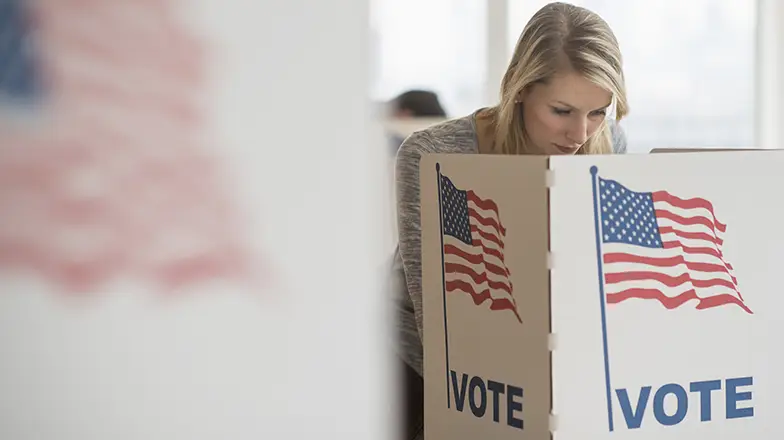Tips to Prevent Colds, Flu or COVID on Election Day

The right to vote is one of many things that make the United States great ... but your polling place is also a great place to catch a cold. By following a few simple hygiene rules, you'll improve your ability to prevent colds on Election Day and stave off the respiratory infections that can result from them.
Get vaccinated. This is the best way to protect yourself from COVID-19 and the flu. If you are not already vaccinated, talk to your primary care doctor about getting vaccinated before Election Day. Vaccination safeguards you from harm, particularly if your health is already compromised.
Get a COVID-19 test. If you feel sick or have had exposure to someone with COVID-19, visit a BJC Medical Group Convenient Care clinic for a COVID-19 test a few days before Election Day. If you have tested positive for COVID-19, the flu or another contagious disease, you should isolate yourself from others and follow the guidance of your doctor or public health department.
Need a flu shot or COVID test?
Plan your vote. If necessary, vote early by absentee ballot or by mail. Voting early or by mail will help you to avoid crowds at the polls on Election Day, which can help to reduce your risk of exposure to viruses. Registered voters may be able to vote up to six weeks ahead of Election Day.
Bring your own supplies. Bring your own pen, hand sanitizer and, if you prefer, your own mask to the election booth. This will help you avoid sharing germs with others.
Go to the polls during off-peak hours. If possible, go to the polls early in the morning or late in the evening, typically when there are fewer people in line.
Wear a mask. Wearing a mask can help you protect yourself from COVID-19 and other respiratory illnesses, especially if you have a compromised immune system. Masks may slow the spread of respiratory droplets, which can contain viruses.
Social distance. Stay at least six feet away from other people, especially if they are coughing or sneezing. Social distancing may help reduce your risk of exposure to viruses.
Wash your hands often. Wash your hands with soap and water for at least 20 seconds, especially after using the restroom, before eating and after blowing your nose, coughing or sneezing. Washing your hands helps to remove germs from your hands and prevents you from spreading germs to others.
Use hand sanitizer. If soap and water are not available, use an alcohol-based hand sanitizer with at least 60% alcohol. Hand sanitizer helps to kill germs on your hands.
Avoid touching your eyes or face. Viruses can enter your body through your eyes, nose and mouth. Try to avoid touching your face as much as possible.
Wash your hands again. Wash your hands with soap and water (again, for at least 20 seconds) after voting. This will help to remove any germs that you may have picked up at the polls.
Monitor your health for symptoms of COVID-19, the flu and the common cold. If you develop any symptoms, such as fever, cough, sore throat or shortness of breath, stay home and isolate yourself from others. If you are concerned that you may have COVID-19 or the flu, contact your doctor or public health department.
Practice self-care. If you suspect you still contracted one of the many cold viruses circulating every year, take it easy until you feel better. Get plenty of rest and keep drinking plenty of fluids. Take acetaminophen (Tylenol) for headaches and decongestants for upper respiratory tract congestion and a stuffy or runny nose.
If you have the flu, COVID or are experiencing cold symptoms, stay home and vote by mail or absentee ballot. Do not risk spreading your illness to others at the polls.
If you are working as an election official, follow all safety protocols. This includes wearing a mask, social distancing and washing your hands frequently. You may also want to consider wearing gloves and a face shield while working at the polls.
If you have any concerns about voting safely, contact your local election office. They can provide you with more information about the safety measures that are in place at your polling place.
Protect yourself and others from getting sick at the election booth. Follow these tips to stay safe from colds, flu and COVID-19 while exercising your right to vote.
BJC Medical Group providers can help. If a cold, COVID or the flu strike, get the care you need in a few ways:
Make a primary care appointment with the first available provider.
Visit a BJC Medical Group Convenient Care clinic or reserve your spot online.
Schedule a virtual care appointment for quick medical advice and treatment